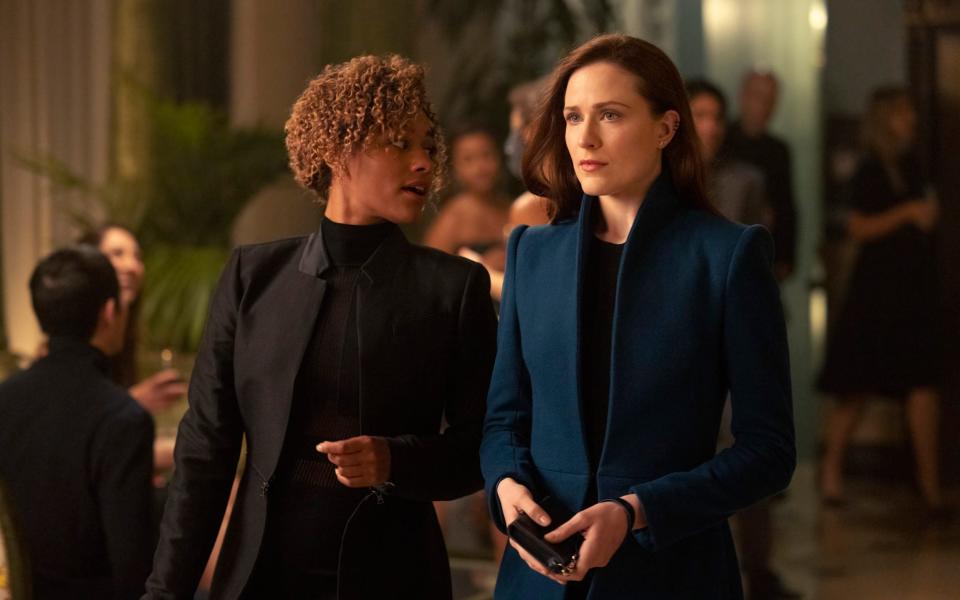Westworld, series 4 review: a meditative ride that keeps the synapses firing

Some TV dramas run out of ideas. Others won’t stop having them no matter how much you beg. Jonathan Nolan and Lisa Joy’s Westworld (Sky Atlantic) falls firmly into the latter. The sky-high sci-fi thriller is now in its fourth season, and if you think the show is still about a Wild West theme park where the robot cowboys and brothel madams have turned murderous… Well pardner, you’re in the wrong saloon.
Season three was set outside the park, in real world Los Angeles in the year 2052, where human beings were effectively “enslaved” by a supercomputer called Rehoboam, which kept people on pre-ordained, algorithmically chosen paths. It’s ever so clever, you see – humans were no different from the theme park’s robot “hosts”, kept in rigid holding patterns, with nothing but the illusion of freedom, their life stories pre-written.
Except mankind was freed by, of all robots, Dolores, the psychopathic farmer’s daughter played by Evan Rachel Wood, who had escaped Westworld to have her revenge on humanity. She helped to destroy Rehoboam, but died in the process. Westworld allows for few certainties, even death, but this was one of them. Dolores was dead, her memories wiped, her soul obliterated.
Naturally, as season four begins, Dolores is alive. Except she is now a drippy brunette called Christina who lives in New York. And she appears to be human. She is a mousy recluse who leaves her apartment only to go to work, where she writes storylines and dialogue for the non-player characters in video games. Dolores, of course, was a non-player character in Westworld.
We are seven years on from the moment humanity was liberated from Rehoboam. Naturally, nothing has changed, bar the fact that humans have to do even more manual labour. This is particularly irksome to manual labourer Caleb (Aaron Paul), who we met in series three when he chucked in his manual labouring job to help Dolores save the world. Now he’s married, with a cute-as-a-button daughter, but miserable, partly because he’s convinced that killer robots are after him, but mainly because he has to labour manually for a living.
Thankfully, he is given another excuse to jack in the 9 to 5 when he is recruited by killer-robot-with-a-soul Maeve (Thandiwe Newton) to help her save mankind (again). Maeve and Caleb’s plot is simple – save humanity, natch – but far more intriguing is Christina’s. The storylines she writes for the video games seem to be happening in real life; somehow she is inadvertently controlling people’s lives.
It’s a classic, moreish Westworld mystery, one that makes you feel clever and stupid at the same time. That’s the beauty of the show. Maeve and Caleb will shoot some robots and blow stuff up, while a later episode in the series will be inspired by Zhuangzi, an ancient Chinese Taoist text which muses upon the essential nature of human freedom. That’s Westworld: it has its cake, it eats it, and you may as well enjoy the spectacle

 Yahoo Movies
Yahoo Movies 